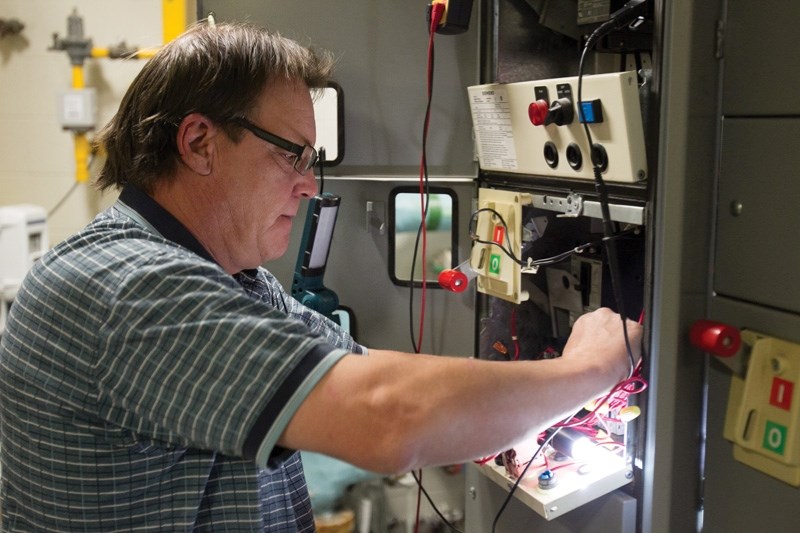The province's ongoing belt-tightening on education funding is making it increasingly difficult to keep the region's schools acceptably maintained – a scenario placing additional strain on already beleaguered staff, say senior Chinook's Edge officials.
With no apparent relief in sight, senior school division officials are vowing to continue their pressure on the Alberta government to pry open the purse strings.
“Absolutely we are. The board has made it a priority when they look at funding gaps from the provincial government,” said Allan Tarnoczi, associate superintendent, who oversees the budget for the facilities and maintenance department. “The biggest impact it has is on our facilities staff. They are working more with less.
“The board is going to be left with some really challenging decisions; either we cut back on the services that we provide or we cut back on other services to support them,” added Tarnoczi.
Susan Roy, treasurer for Chinook's Edge, acknowledged the school division received notice from Alberta Education on Oct. 21 that it was receiving an extra $1.8 million in funding for the department's building envelope budget, funding that goes into roof maintenance and other bigger ticket expenses.
She said for “several” years the division was receiving $1.8 in provincial Infrastructure Maintenance and Renewal (IMR) funding for the building envelope side but in the 2013-14 year it dropped to $1.4 million.
She added that while the recent $1.8-million funding infusion was welcomed by the division, more funds are urgently required for the maintenance side of the budget, monies needed to assist hard-pressed custodial staff and to keep schools acceptably clean and tidy.
Roy said for a period of at least two years the division was receiving around $9 million a year in grants for maintenance but in 2012-13 there was a cut of $100,000. The following year the provincial government changed the way the grant was calculated and monies for maintenance went down another $200,000, which forced the division to make cuts to ensure services were maintained at acceptable levels.
Meanwhile, an Alberta Education spokesperson confirmed the Chinook's Edge School Division received a “significant increase” in maintenance funding of close to $2.2 million for the 2014-15 school year, an amount that brings the total to $12.4 million.
Tamara Magnan, the director of communications for Alberta Education, said if there is a maintenance shortfall the school division is authorized to use reserve funds to address it.
“We fund boards based on local geographic and demographic factors, but local boards have the responsibility to determine how to best meet student needs based on local conditions,” said Magnan. “The board must prioritize their funding framework allocations and make their decisions based on local need within the available resources.”
But Tarnoczi said the school division has “slipped into a deficit situation” in providing the required maintenance services.
“The challenge though is that we have to support the provision of those services with additional dollars from other envelopes. It puts more pressure on the entire organization,” said Tarnoczi, adding his staff is doing its best to ensure a minimal adverse impact on students.
He said he was unable to calculate last week how much funding is now needed that would provide an acceptable level of relief but he did say if the province would have at least provided funding to keep up with inflationary pressures, the problem would not have the adverse impact it is now having.
“To try and pay for all those services with the same dollars you paid for three years ago isn't working,” said Tarnoczi.
In the meantime, Tarnoczi said the situation has forced more responsibilities on the division's hard-pressed maintenance staff, who now have to work harder at the division's 30 traditional institutions and 11 alternative schools.
“It is a problem that is progressively becoming more serious all the time,” said Tarnoczi. “At this point we are still coping with a minimum impact, and we are increasingly worried that we are going to be unable to do that going forward.”
"The board has made it a priority when they look at funding gaps from the provincial government."Allan Tarnoczi, associate superintendent



